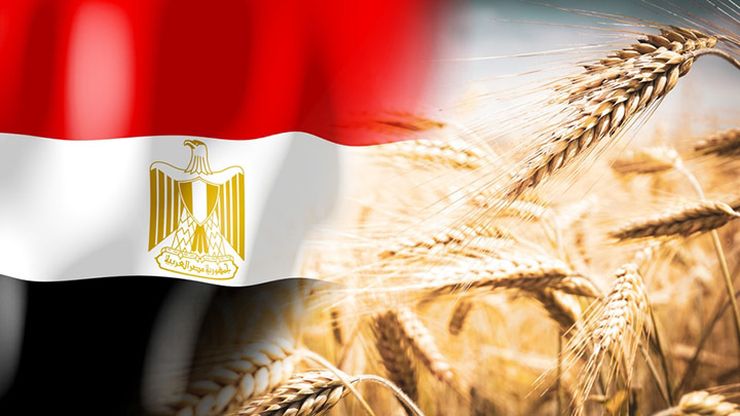Egypt lowers 2025 wheat self-sufficiency target to 51%

Egypt has lowered its wheat self-sufficiency target for the current fiscal year despite plans to increase its agricultural land area, a cabinet report said on Wednesday, in line with plans to diversify agricultural exports.
The self-sufficiency target of 51% for one of the world’s largest wheat importers for the fiscal year ending June 2025 is slightly higher than the previous year, but lower than the previously announced target of 65% for 2025.
Egyptian President Abdel Fattah al-Sisi said in May 2024 that Egypt does not need to grow more wheat, but instead could use farmland to grow other export crops and then use the proceeds to import wheat, Reuters reported.
The Egyptian government buys wheat internationally and locally to offer tens of millions of Egyptians subsidized bread. According to a cabinet report, local wheat production currently meets 49% of demand, up from 45% in 2020.
Egypt’s economy has been suffering from a hard currency shortage that only eased when the United Arab Emirates signed a $35 billion deal in February for the right to develop a stretch of Mediterranean coastline and other projects. That was followed by an expanded $8 billion loan agreement with the International Monetary Fund and other international financing.
The cabinet report also indicated that Egypt aims to produce enough local wheat to meet 56% of its demand by 2030, from a total farmland area of 12 million feddans (12.5 million acres).
Meanwhile, the government aims to increase corn self-sufficiency to 67% by 2030 from the current 46%.
Read also
Wheat in Southern Brazil Impacted by Dry Weather and Frosts
Oilseed Industry. Leaders and Strategies in the Times of a Great Change
Black Sea & Danube Region: Oilseed and Vegoil Markets Within Ongoing Transfor...
Serbia. The drought will cause extremely high losses for farmers this year
2023/24 Safrinha Corn in Brazil 91% Harvested
Write to us
Our manager will contact you soon



